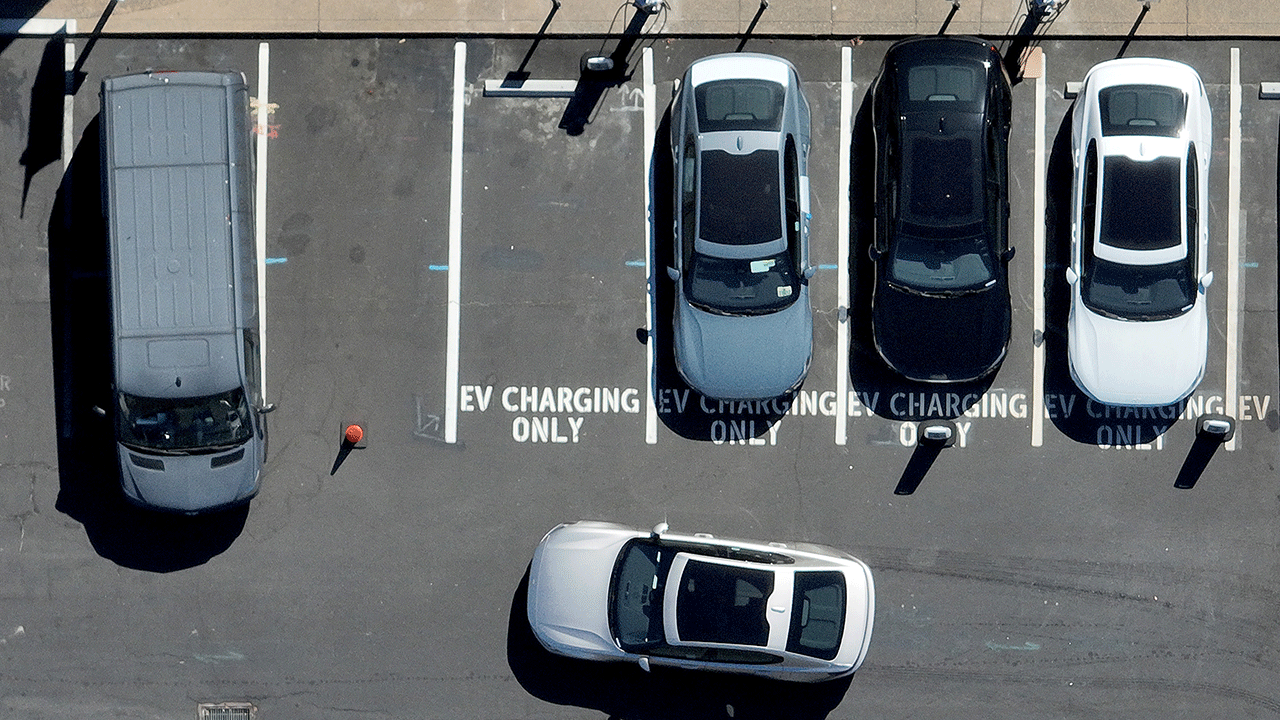A top Maine state environmental agency delayed a highly-anticipated vote to approve a sweeping electric vehicle (EV) mandate amid a storm that caused widespread power outages.
The Maine Board of Environmental Protection (BEP) announced that it had indefinitely postponed the meeting, which was slated for Thursday afternoon, until further notice following the storm. Democratic Maine Gov. Janet Mills, who has pursued an aggressive green energy agenda, declared a state of emergency this week, an action that closed state government offices.
“Governor Janet Mills declared a State of Civil Emergency for 14 Maine counties following a significant wind and rain storm that has left hundreds of thousands of people without power and that has caused significant flooding and infrastructure damage, including to town and state roadways,” the Maine BEP said in a statement.
“In consideration of the challenges facing Maine citizens who may wish to participate in the upcoming Board meeting in Augusta, the Board is postponing its meeting scheduled for December 21, 2023,” the statement continued.
NEW REPORT UNMASKS TRUE COSTS OF ELECTRIC VEHICLE MANDATES: ‘REMAIN MORE EXPENSIVE’
Democratic Maine Gov. Janet Mills is pursuing a sweeping climate agenda, pushing both vehicle electrification and green energy development. (AP Photo/Robert F. Bukaty)
Bill Hinkel, a spokesperson for BEP, said that the agency was actively working on the next steps for the delayed meeting.
The devastating rain and windstorm swept across Maine on Monday, killing at least two men and leaving more than 400,000 residents without power. The storm forced businesses and schools to close as workers raced to restore power and clear roads.
BEP, which is required to prevent, abate and control pollution in the state, voted in late October to approve the Advanced Clear Car Program, which would mimic regulations in California mandating that more than 40% of new car purchases in the state be electric by 2027 and 82% be electric by 2032. The agency was expected to finalize that mandate during the meeting on Thursday.
The state proposal, though, has faced considerable bipartisan opposition from state lawmakers led by Republicans, but also from Rep. Jared Golden, a House Democrat. Golden noted this week that a strong storm would render electric vehicles useless, given their need for reliable electricity generation and supplies.
BEIJING-BACKED GREEN ENERGY FIRM IS EXPANDING IN US, POSING SERIOUS NATIONAL SECURITY RISK: REPORT
“In two days, the Maine Board of Environmental Protection will vote on proposed rules that would establish a California-style set of mandates forcing Maine auto dealers — and ultimately their customers — to purchase zero-emission vehicles,” Golden said Tuesday.

Rep. Jared Golden, D-Maine, is seen during a House Armed Services Committee hearing in 2019. (Tom Williams/CQ Roll Call)
“Earlier this year, I submitted testimony in opposition to such a mandate and have taken every opportunity in Congress to vote against policy that amounts to de facto electric vehicle mandates,” he added. “Forcing Mainers to purchase cars and trucks powered by electricity when our grid is insufficient, charging stations are few and far between, and a storm like yesterday’s would render 80% of cars useless is, to say the least, ill-advised.”
State Republican leaders have repeatedly blasted the proposal, saying it was unrealistic and would only lead to higher consumer costs.
“Extremists seem to think that only 6% of consumers want EVs because the government hasn’t forced them to buy one,” Maine state House Republican Leader Billy Bob Faulkingham said this month. “The truth is this plan isn’t feasible because of Maine’s geography and infrastructure. It is about freedom of consumer choice. I hope the BEP will abandon this horrible idea before it ruins the Maine economy.”
BIDEN’S AMBITIOUS EV PLANS COULD MAKE US MORE DEPENDENT ON CHINESE SUPPLY CHAINS, EXPERTS WARN
Maine state Senate Republican Leader Trey Stewart noted that automakers are scaling back their EV production and that Connecticut recently abandoned its EV mandate proposal amid opposition.

Maine’s electric vehicle mandate proposal would require 40% of new car purchases in the state to be electric by 2027 and 82% to be electric by 2032. (Justin Sullivan/Getty Images)
Meanwhile, critics of aggressive EV requirements have warned that the U.S. power grid is currently unequipped to handle the significantly increased demand and load that would be generated by widespread EV adoption. They have also argued that power outages, triggered by both storms and low supplies, could render large swaths of an electrified transportation sector useless.
CLICK HERE TO GET THE FOX NEWS APP
“The only way the electrification of the transportation sector and of home heating and cooling can work is if the utility sector continues to build natural-gas-fired plants and looks to building nuclear plants and perhaps building new coal plants because the grid in these states that are pushing these policies is already overloaded,” Myron Ebell, the director of the Competitive Enterprise Institute’s Center for Energy and Environment, previously told Fox News Digital.
“As everybody moves to EVs, if it happens, the only way to do it is to find more baseload power and dispatchable power.”
Mills’ office did not immediately respond to a request for comment.